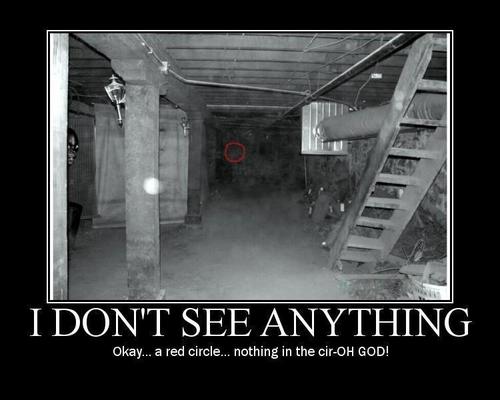Social media is abuzz with impassioned posts about freedom of speech, judgment vs. judging not, and the difference between showing tolerance and being clobbered by it.

“Hey! Leggo my hand!”
In case you’ve been living under a rock (or you are the happy few who pay little attention to social media feeds and entertainment news), you know that a rich, white, Southern guy with a well-known cable reality TV show has been accused of spouting bigotry and racism during an interview with a popular magazine. He claims his comments are based on his Christian faith and interpretation of the Bible. Some people, whether they’ve read the article or not, are outraged. Others are outraged at those who are outraged. Apparently, it is THE most important issue for Christians to think about and talk about and argue about and spend their energy and emotion responding to … this week.
I have no direct response to this issue. Oh, I could say some things, sure. But I won’t for three reasons. The first is, I just don’t care. I know this rich, white Southern celebrity is my brother in Christ and that I should show at least some measure of concern for what he has to say as a representative of Christianity. But I just don’t care. If I have to concern myself with his words, then I must concern myself with all the words spewed by all my other Christian brothers and sisters who are attacking what he said, defending him for saying it, or sitting on the fence until the winds of controversy dissipate. So, instead, I will ignore the talk and simply offer this blog post as my only “stance” on the issue.
The second reason I won’t straight-up respond to the controversy is that I recognize it to be one of those times in which the more you comment, the less clear the issue becomes. Whether you speak from conviction or merely out of loyalty because you’re a fan of the guy’s TV show, your words will only muddle the issue – make it sloppier and more complicated than it already is. Some people will agree with your points, while others will make it their mission to refute every little idle word they can identify. This I have learned from experience – unproductive experience.
The third reason I will not throw my hat into the ring of this particular controversy is Mary.
Here’s the deal. This controversy, like so many others that have set the Internet and cable news networks ablaze in 2013, boils down to one thing: what to do with sinfulness.
Read enough comment threads or Huffington Post articles or religion-themed blogs and you will find that with any issue concerning accusations of bigotry or a controversy generated by a person (or an organization) allegedly standing up for “what the Bible says,” there are those Christians who feel it is the dutiful thing to “support” and/or “stand with” the person (or organization) being “persecuted,” and there are others who, instead, point out where that person (or organization) went wrong and how they could have been less judgmental and better exemplified the Christian’s call to “love others.”

Was that enough quotation marks for you?
Maybe ‘tis the Season, but rather than these two trains of thought, I can’t help but think of Mary. Virgin Mary. The girl from Nazareth. The girl on the road. The girl who was visited by an angel, entrusted with an extraordinary promise, and willingly accepted the consequences.
You see, with Mary, God seemed to break his own rules. The Gospel of Luke makes it clear that while Mary was engaged to Joseph (the word is “betrothed,” indicating a promise of marriage had certainly been made), they had yet to be fully married and nothing had been consummated. Ask any evangelical Christian if it is okay to conceive a child out of wedlock, and they will shake their heads and point to Scripture to back up that conviction.
But it doesn’t stop there. Mary is called “highly favored” by the angel Gabriel, but then she is found to be with child “by the Holy Spirit.” In other words, she is unmarried and pregnant, and so, in the eyes of the public, she is a sexually active loose woman. In the eyes of the Law of Moses (which Jews believed was almost literally handed down by God to the people of Israel), she is an adulteress. According to that same law, both she and the man with whom she committed adultery (if it is indeed not Joseph) should be condemned to death (Lev. 20:10). If she escapes a death penalty (by any other excuse than she is the victim of a rape, which we cannot believe she claimed), it is only on a technicality that the marriage to Joseph had not yet been consummated and because she is therefore, for all intents and purposes, a prostitute. Is it any wonder that Matthew’s Gospel tells us Joseph was seeking to annul their engagement? Is it any wonder Mary spends three months of her pregnancy living with her cousin far from her hometown? Is it any wonder she is willing to travel with Joseph to Bethlehem, to leave her home and make that long journey south, before they are officially married?

Like this, only less honeymoon-ish and more sand and swollen feet.
According to ancient Church tradition, before we can revere the Incarnation, the birth of Jesus into the world (i.e. the season of Christmas), we must sit for a while in anticipation of his coming. This season is called Advent. It is marked by hoping and waiting. Hoping for the best, and waiting for God to show Himself. And of all the biblical stories that correspond to this time of hoping and waiting, the one at the center is that of Mary, the girl on the road, the girl of scorn and shame, the girl with a bastard child growing inside her. Hoping that she will endure the scorn and remain obedient to God’s will. Waiting for God to show up and sanctify what everyone else sees as sinful.
Because, according to what the Scriptures say, Mary should be condemned. One wonders if the reason why “there was no room in the inn” had more to do with keeping sinfulness at bay than it did with a particular house being at capacity. One wonders if the reason the baby Jesus was placed in a manger was to keep his uncleanness and unlawfulness (according to Leviticus) at a distance from the good Jews who did not want to be rendered unclean by association. One wonders if one of the main reasons the angel announces the birth to a bunch of shepherds is because those lowly peasants might have been the only ones unfazed if they were to have learned the sordid nature of the baby’s family history.

“Ummmmm! We’re gonna tellllll…”
If the story at the heart of Advent teaches us anything, it is that God is more concerned with proclaiming the birth of his Son – and ALL it entails – than he is with laws and rules and naming sins. This is not to say that the law – in this case the moral, sexual statutes in the latter half of the Book of Leviticus – is pointless. However, when it comes to the good news of Jesus Christ, it takes a backseat. A way way backseat. What matters is Jesus, come to earth. What matter is peace on earth and (to cite an outdated translation) goodwill toward men.
With the help of a divinely inspired dream, Joseph recognized this before it was too late. Instead of distancing himself – joining the finger-pointers and keeping his distance for the sake of propriety and good, wholesome morality – he chose the way of love. He gave no arguments, made no rationalizations. He simply erased the distance between himself and the one who was scorned. He willingly journeyed to Bethlehem.
One hopes that, each year, we will choose likewise.











